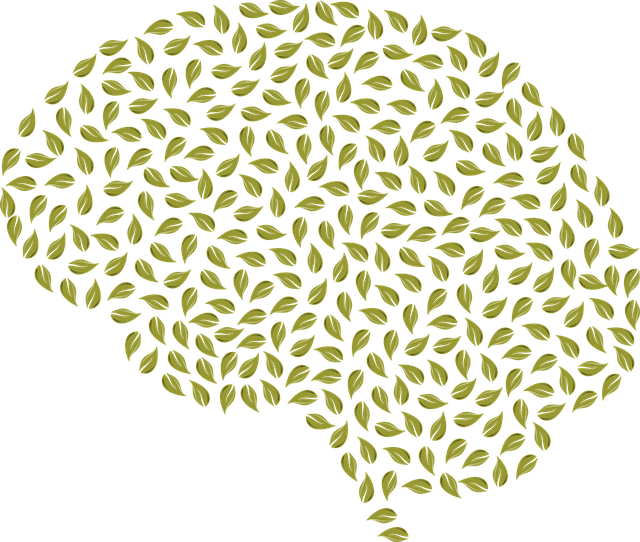Denver Mindfulness Therapy offers a structured approach to building resilience using RFM framework (Recovery, Flexibility, Mastery) through Crisis Intervention Guidance, mindfulness meditation, and self-care practices. By harnessing neuroplasticity, their techniques strengthen psychological muscles to cope with setbacks, stress, and trauma. This is particularly valuable for healthcare professionals in high-pressure environments aiming to combat burnout and improve patient care via integrated risk assessment and practical exercises like mindful breathing, body scans, and guided meditations.
“Resilience is a powerful tool in navigating life’s challenges, and RFM (Recovery, Flexibility, and Mastery) offers a structured approach to building this inner strength. This article explores how Denver Mindfulness Therapy leverages the RFM framework to enhance mental resilience. By understanding the science behind resilience and implementing practical exercises, individuals can transform their ability to cope with stress and adversity. Discover effective strategies to cultivate a resilient mindset and embrace life’s challenges head-on.”
- Understanding RFM: A Framework for Resilience
- The Science Behind Building Mental Resilience
- Practical Exercises for Enhancing Resilience with Denver Mindfulness Therapy
Understanding RFM: A Framework for Resilience

Resilience is a vital asset for navigating life’s challenges and adversities. At Denver Mindfulness Therapy, we understand that building resilience involves equipping individuals with effective coping strategies to bounce back from difficult situations. The RFM (Recovery, Flexibility, and Mastery) framework serves as a powerful tool in this process.
This framework provides a structured approach to resilience-building exercises, focusing on three key dimensions. Recovery refers to the ability to manage and recover from crises or traumatic events. Flexibility involves cultivating mental adaptability, enabling individuals to adjust their perspectives and behaviors during challenging times. Mastery concerns the development of skills and confidence in managing emotions, thoughts, and actions effectively. Through Crisis Intervention Guidance and incorporating Mindfulness Meditation and Self-Care Practices into daily routines, Denver Mindfulness Therapy guides clients in enhancing these dimensions, fostering a more resilient mindset.
The Science Behind Building Mental Resilience

The concept of mental resilience is rooted in the understanding that our minds are adaptable and capable of overcoming challenges. Building resilience involves strengthening one’s psychological muscle, allowing individuals to bounce back from setbacks, stress, or trauma more effectively. This process leverages scientific insights into neuroplasticity, the brain’s remarkable ability to form new neural connections and adapt. Research shows that by consistently exposing ourselves to varied experiences, we can stimulate these connections, fostering a stronger, more resilient mind.
Denver Mindfulness Therapy emphasizes this principle through various exercises designed to enhance mental wellness. Techniques such as mindfulness meditation, journaling, and cognitive reframing offer practical tools for navigating anxiety relief and emotional challenges. For mental health professionals, integrating risk assessment into their practice is vital; it ensures that interventions are tailored to individual needs while managing potential risks, thereby promoting effective and safe resilience-building guidance.
Practical Exercises for Enhancing Resilience with Denver Mindfulness Therapy

Denver Mindfulness Therapy offers practical exercises designed to enhance resilience and combat burnout, especially relevant in the healthcare sector where Burnout Prevention Strategies for Healthcare Providers are crucial. These mindfulness techniques help professionals manage stress, improve focus, and cultivate a sense of inner calm amidst challenging situations.
By incorporating these practices into daily routines, healthcare providers can improve their Self-Care Practices and better serve their patients. Through mindful breathing exercises, body scans, and guided meditations, individuals learn to navigate life’s complexities with increased equanimity, resilience, and clarity—essential tools for maintaining well-being in demanding professions.
Resilience is a powerful tool that can significantly enhance our ability to navigate life’s challenges. By combining the RFM framework with the science-backed benefits of mental resilience, individuals can better prepare for and overcome stressful situations. Denver Mindfulness Therapy offers practical exercises that effectively cultivate resilience, enabling folks to embrace change, foster emotional well-being, and lead more fulfilling lives. Incorporating these strategies into daily routines can be a game-changer, ensuring we’re equipped to handle life’s twists and turns with grace and strength.








